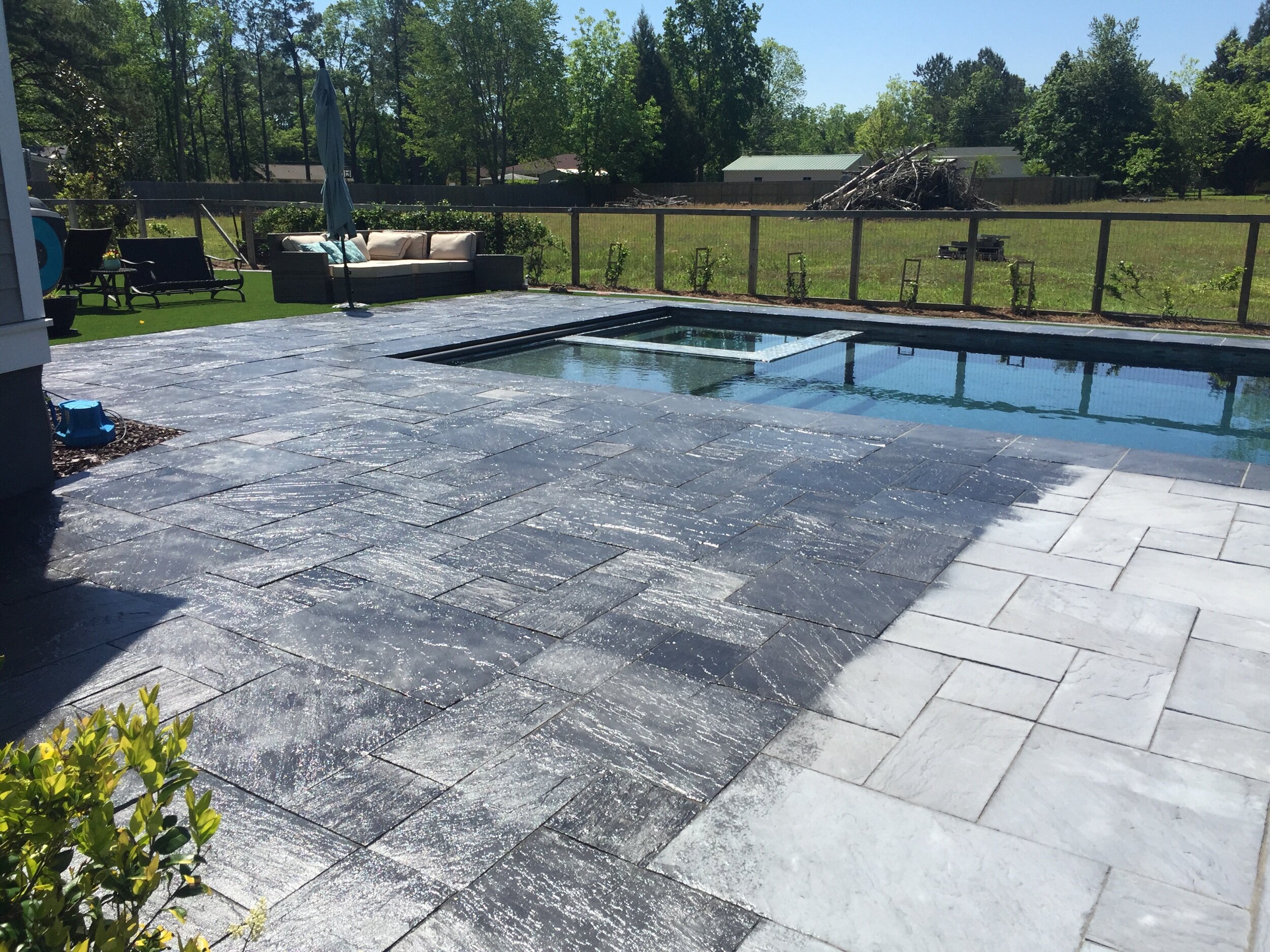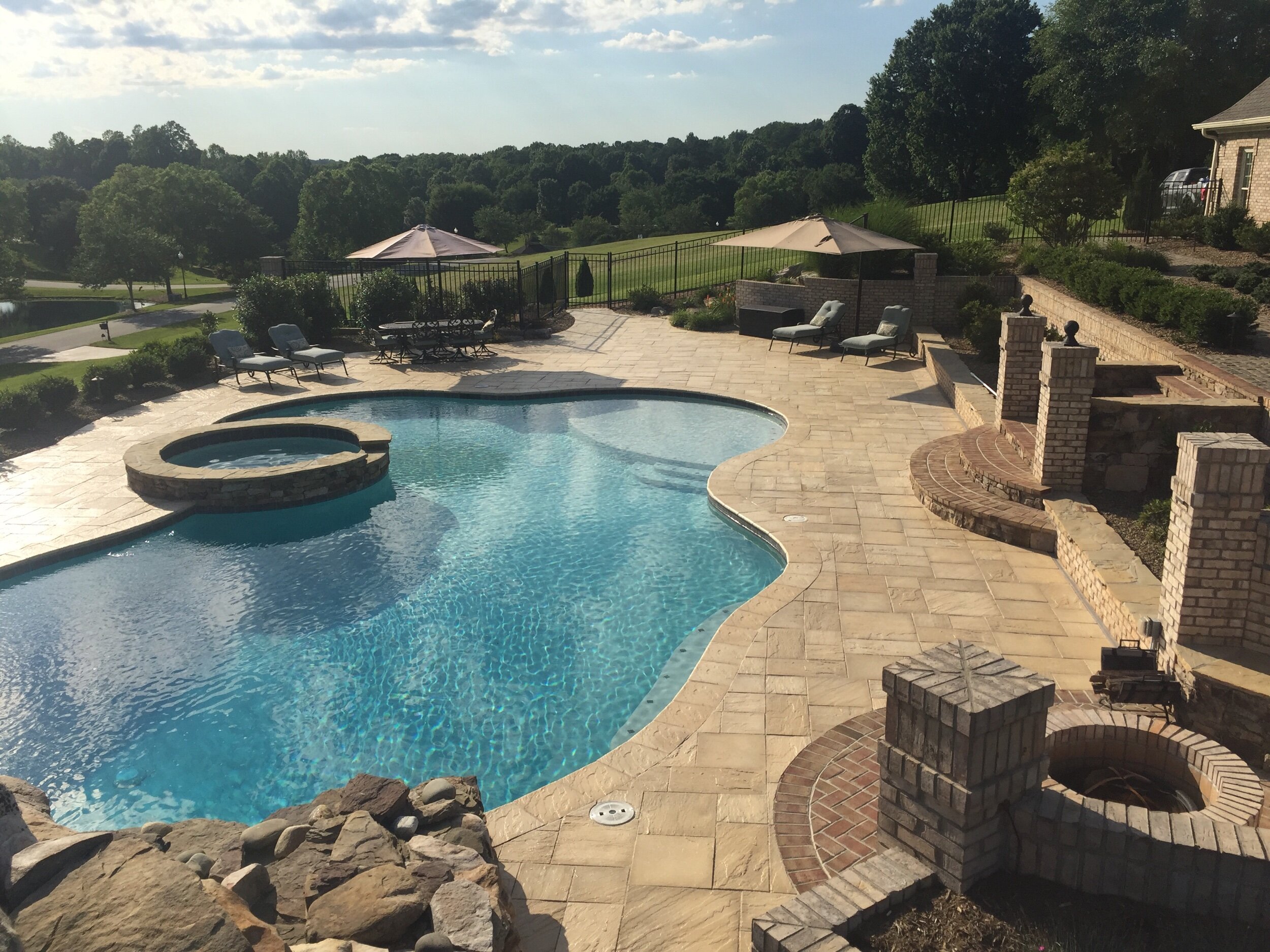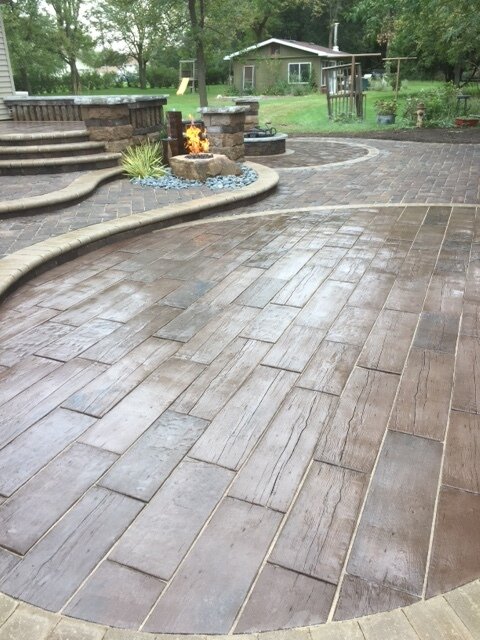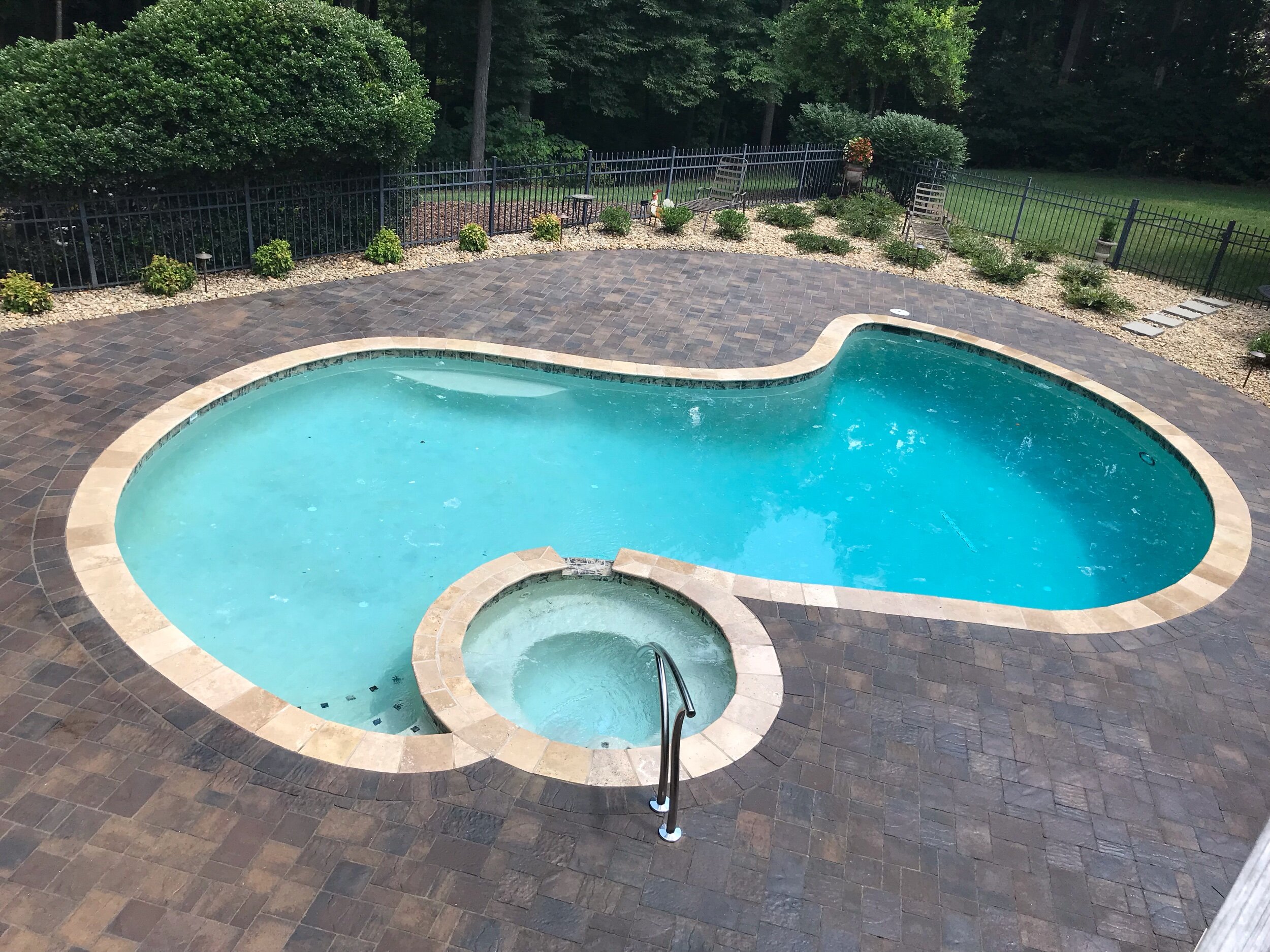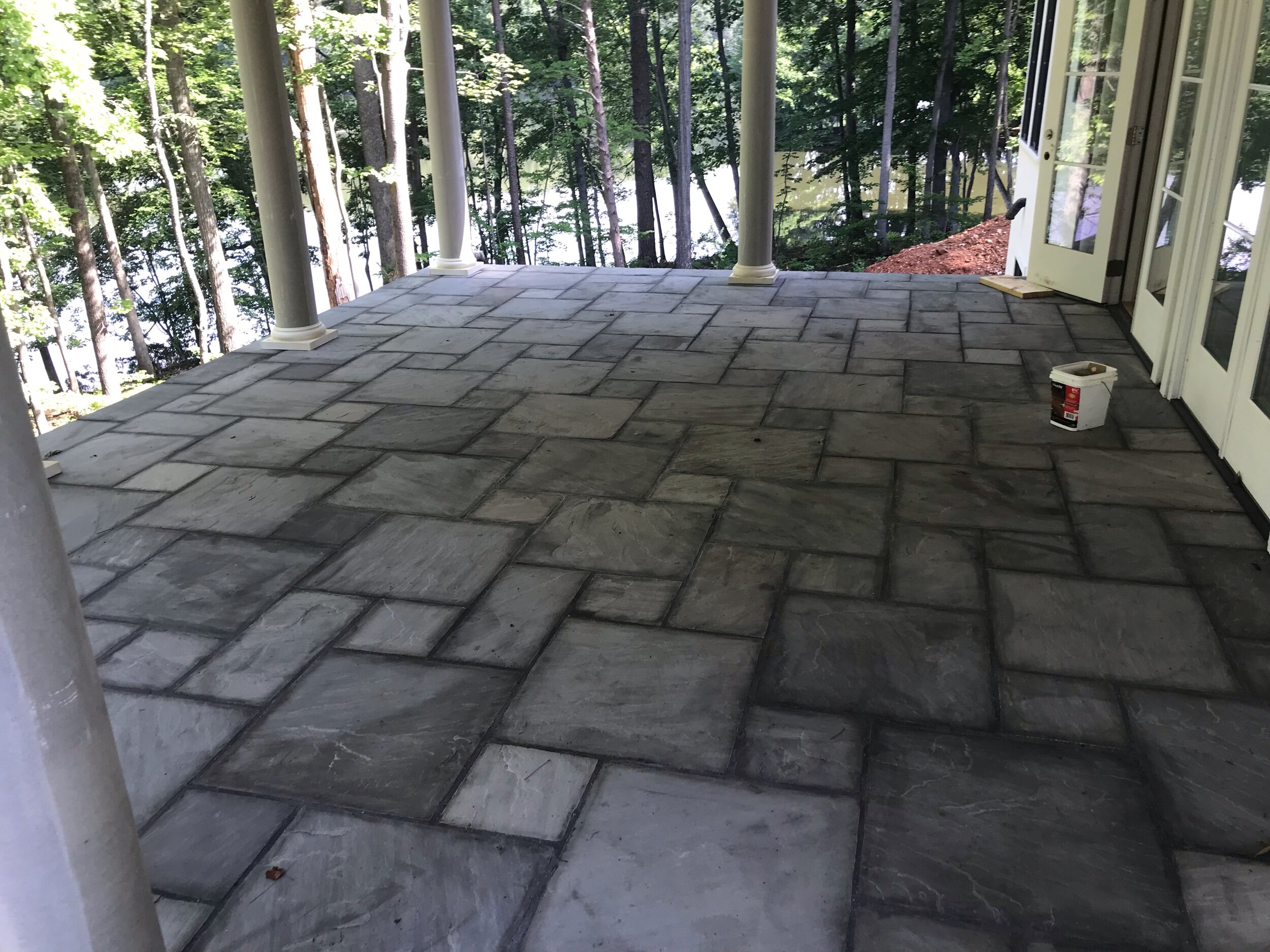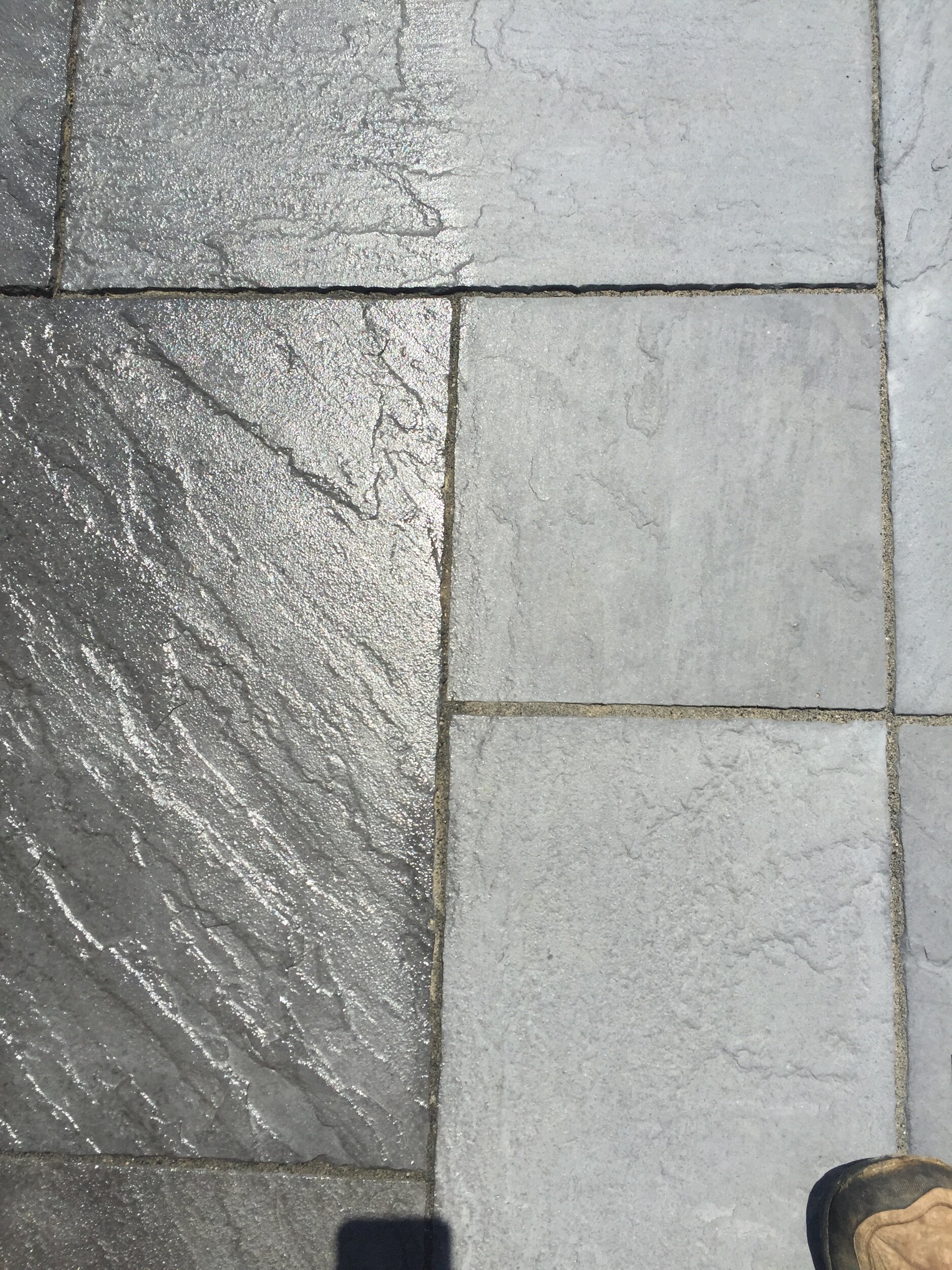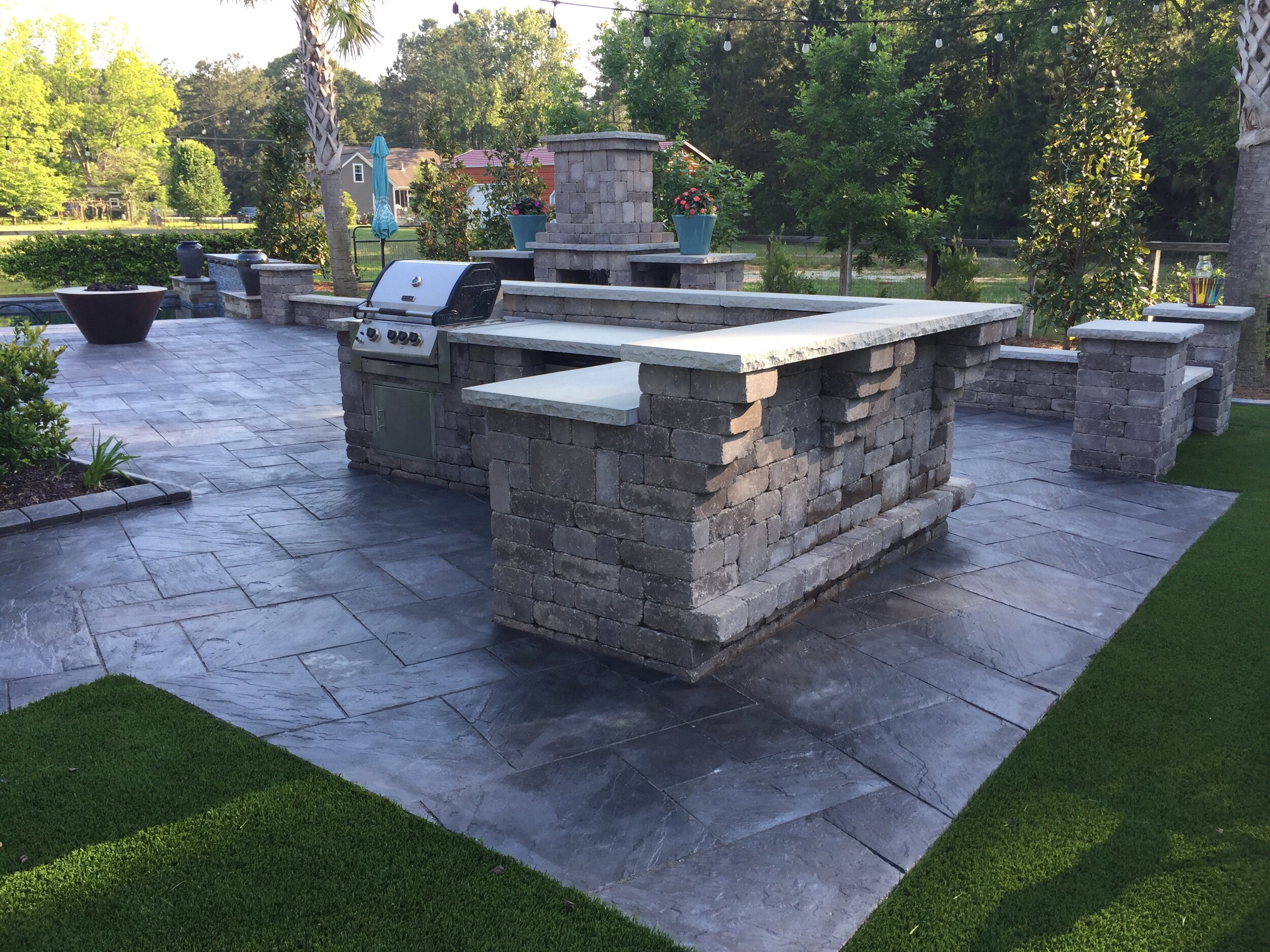There are many benefits to sealing pavers, but it’s not absolutely necessary. It really depends on the type of paver system you have, your expectations of how long you would like them to look great. Pavers that aren’t sealed or installed correctly could;
Grow weeds in the joints
They will fade and loose their color from wear and UV breakdown
Joints sand loss or breakdown
All that being said, yes you should seal your pavers. Most paver manufactures will tell you it is highly recommended as well.
Are all sealants the same?
The two most common types of paver sealants are: water-base and solvent base. Some are film-forming (gloss or semi-gloss finish) and non-film-forming (matte finish). Film-forming sealants, such as Wet Look and Clear Look, offer the ultimate protection because they create a physical barrier on the paver surface. However non-film-forming sealants, Natural Look and Color Boost, still offer excellent protection and last a bit longer.
What if I don’t seal my pavers?
If you don’t seal your pavers, they won’t deteriorate and wither away. You will just likely have to clean your pavers more frequently and the stains will be harder and in some cases impossible to remove. So yes, sealing was designed to protect pavers from rain, snow, ice and even sun (although some pavers are designed to be UV resistant). Sealing can also protect your pavers from anything foreign that might fall on them – staining from oil, leaves, spills. Sealing creates an invisible layer on top of your pavers that repels water, oil and anything else you might accidentally drop, as long as you wash it away as soon as you notice it.
A properly installed paver patio with proper base installation will go a long way to prevent weeds, however, sealing pavers with a joint stabilizing sealer will harden the polymeric sand joints even more so and will make it very difficult for weeds to grow. A lot of people are confused where weeds in the joints of pavers come from. It’s often thought that the weeds come from beneath the pavers and grow through the joint; or that maybe there were seeds in the sand setting bed and they germinate and grow up through the joint. Both of these cases are wrong and probably impossible. Weeds in pavers almost always come from seeds being blow in and deposited into the sand joint from neighboring weeds. If you have a lot of weeds in your yard or landscape beds than its almost a guarantee that you will have weeds in your pavers. Of course, sealing your pavers with a joint stabilizing sealer will help combat the weeds.
If you notice sinking spots or your pavers shifting, chances are its not a result of your pavers not being sealed. It’s a result of poor base installation or edge restraint failure. One of the leading cause of paver failure is the lack of Polymeric sand being installed in the paver joint. The sand joint acts as a filler between each paver when installed correctly the polymers activate and create a concrete like material. When the joint sand goes away, there are little spaces between each paver allowing water to see beneath them, which causes bass failure, ultimately allowing them to move around because they’re no longer tight. If you use proper joint sand and were to seal your pavers with a joint stabilizing sealer, it would prevent sand loss which in turn could prevent your pavers from settling or shifting.
Can I seal my own pavers?
Of course we’re going to tell you that you can’t, its our job. Just kidding! However, there are some things that can go drastically wrong if you don’t know what to look for when sealing your pavers.
The most common problems that can happen from your DIY sealing project.
Hazing or a white film trapped under the sealer. If this happens, the only option is to strip all of the sealer (which is a tough job) and start all over again. This occurs from skipping the preparation process or not properly cleaning first. We use specialized equipment and products to clean the pavers. Since the sealer enhances colors, you may not notice a stain after cleaning but after sealing it could be enhanced causing the stain to look worse than it did before you cleaned it.
You really won’t save much money by cleaning and sealing pavers yourself. You will pay retail for the sealer, you’ll more than likely have to rent a pressure washer ($50-$100 per day), you’ll need to buy new polymeric sand , buy paver cleaner and possibly efflorescence remover and not to mention the time it will take you. We’re able to clean and seal most paver patios and driveways in one day – we’re efficient and have the right equipment. It could take you an entire weekend or more depending on how large your project is. And who wants to spend their weekend cleaning/sealing a patio? Get in touch with TerraScapes will be happy to help!


